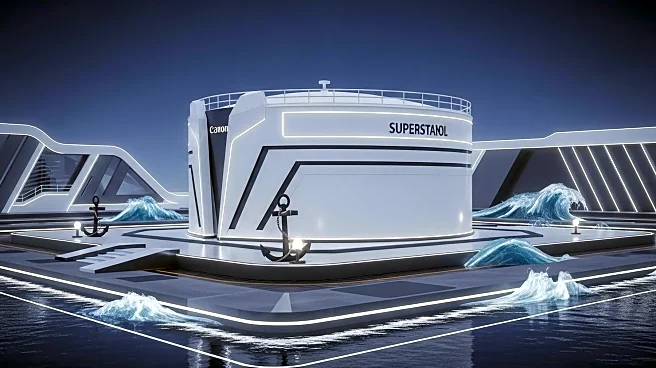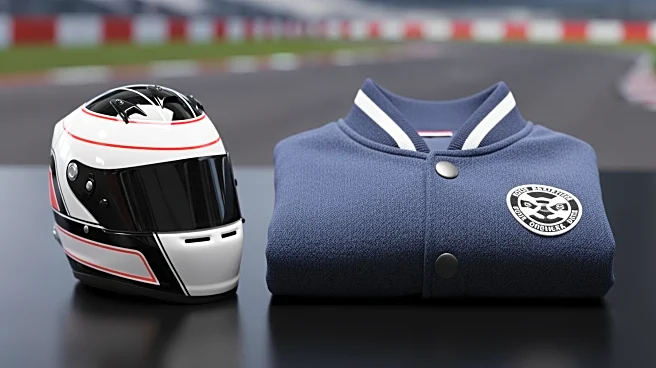What's Happening?
ClassNK has granted approval in principle for a methanol fuel tank design concept developed by SRC Group. This design utilizes Sandwich Plate System (SPS) technology to significantly increase shipboard storage capacity for methanol and ethanol. The approval confirms the design's feasibility from regulatory and safety perspectives. Methanol is increasingly adopted as an alternative fuel in the maritime industry, necessitating efficient storage solutions. The SPS technology features a solid elastomer core sandwiched between two steel plates, offering 85% more storage capacity than conventional tanks. ClassNK presented the concept to the Panama Maritime Authority, receiving acknowledgment prior to issuing the approval.
Why It's Important?
The approval of SRC Group's methanol superstorage tank design is significant for the maritime industry, which is shifting towards alternative fuels like methanol and ethanol. These fuels require larger storage volumes due to their lower energy density compared to traditional heavy fuel oil. The increased storage capacity provided by the SPS technology addresses this challenge, potentially extending ship range and influencing vessel design. As the industry moves towards greener solutions, innovations like SRC's design are crucial for meeting environmental goals and operational efficiency.
What's Next?
With the approval in principle, SRC Group's methanol superstorage tank design is poised for future application in actual vessels. The next steps involve facilitating the final approval process and integrating the design into new ship constructions. The maritime industry may see increased interest in adopting this technology, especially as more methanol-ready ships are built or ordered. Stakeholders, including shipbuilders and regulatory bodies, will likely monitor the implementation and performance of this innovative storage solution.
Beyond the Headlines
The development of SRC Group's methanol superstorage tank highlights the maritime industry's commitment to sustainability and innovation. As environmental regulations tighten, the industry must balance operational needs with ecological responsibility. This design not only enhances fuel storage but also represents a shift towards more sustainable maritime practices. The collaboration between SRC Group and ClassNK exemplifies the importance of partnerships in advancing technological solutions that meet both regulatory and industry standards.










